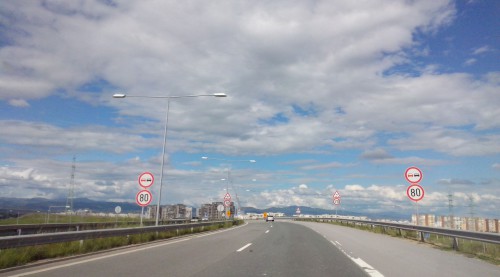
Last week, I spent a day on the road following the election campaign and various candidates, and will do the same this week. My colleagues in the Embassy have done likewise. It’s a great way to see politicians up close dealing with real people and their real concerns, before they get pulled back into Sofia power-broking. Of course, I have no vote and am strictly neutral: our job is to work with whomever the Bulgarian people choose on our common interests.
Every politician I have met has told me that Bulgaria has changed after the protests. In the last year, civil society found its voice and the people held their politicians to account. Those same politicians in turn know that their decisions will be scrutinised carefully. They know that it would not take much to bring people back onto the street. There is heightened accountability, particularly in the security sector, after 2013’s hasty restructuring and controversial, short-lived appointment of a new Chairman.
Whoever forms Bulgaria’s next government faces some big issues. All agreed that the energy sector needs far-reaching reform. Bulgaria continues to fall behind Romania in the CVM process that monitors the fight against organised crime and corruption. There is an uncertain investment climate.
On these, and other issues, thinking long-term and making difficult reforms will take real political courage. But such big issues cannot just be for the next government: the three biggest parties have all been in government over the last two years and know how hard these issues are to tackle. Political courage is for those in opposition too: it would be in Bulgaria’s interests for there to be a national, political consensus on some of these big issues, as in 1997 on the Currency Board.
Election campaigns are uplifting events, with stirring speeches, thumping music and glitzy sets. But the most uplifting thing about elections is the accessibility of politicians to their electorate and their accountability at the ballot box. If that transparency and accountability were to continue after the elections, we could see a very different relationship between government and people.
The politicians all tell me that Bulgaria has changed; the question is how will they respond?
